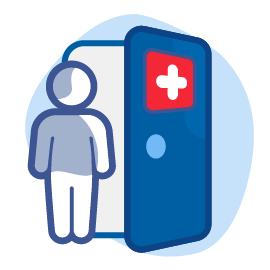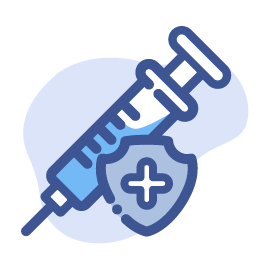
ISSUE 4 / WINTER 2023

Maryland Medicaid requires
you to renew your coverage.
Medicaid renewals will not be automatic this year. Check in with Maryland Health Connection to ensure your contact information is correct to receive important notices on any changes to your health insurance.
You will receive a notification when it’s your time to renew,
and you will have to renew your coverage.

Keep your coverage with MPC.
To keep your info current, here’s what to do:
- Watch for your Renewal Notice. A renewal notice will be sent to you by Maryland Health Connection. You will receive your notice by mail or online through your Maryland Health Connection account. This notice will tell you to complete your renewal.
- When you receive your notice from Maryland Health Connection, log into your account at MarylandHealthConnection.gov/Checkin or call 855-642-8572.
- Renew your coverage as soon as you receive your notice.
- If you have moved, log into your account at MarylandHealthConnection.gov/Checkin or call 855-642-8572 to update your contact information so that you will receive your notice when it is time to renew.
If you do not renew, you will lose your health benefits.
- Don’t wait.
- Don’t let your MPC Medicaid coverage expire.
- Complete your renewal when you receive it!
Get help online, in person, or by phone.

- Call Maryland Health Connection at 855-642-8572. Help is available in more than 200 languages, including deaf and hard of hearing.
- Call or visit your local Department of Social Services.
- Call or visit your local Health Department.
- Connect with a broker or navigator.
Making the Most of Your Doctor Visit
Are you nervous to ask your provider questions? Don’t be. You may be surprised to learn that your medical team wants you to let them know that you need help or more information. Here are 3 specific questions to ask your provider to better understand your health conditions and what you need to do to stay healthy:
To prepare for a visit with a new primary care provider (PCP), bring a list of all medications that you are taking. Include a list of any concerns or symptoms that you may be experiencing. No matter how big or small, talking about your concerns with your doctor could make a big difference in your health. Be sure to maintain an open discussion with your new or current PCP to make better care decisions together.
Additional information can be found here.
Ensuring the Right Care for You


Ensuring the Right Care for You
MPC’s Utilization Management Program ensures that all members receive quality, medically necessary services that are delivered in the right healthcare setting. MPC staff makes decisions about members’ care based on the member’s service needs and their healthcare coverage. MPC does not reward staff for denying services. MPC’s utilization management activities are not designed to reward staff for denying, limiting, or stopping medically necessary services to members.
Maryland Physicians Care offers medical coverage and health benefits that are close to home.
This coverage includes access to primary and urgent care visits, pregnancy and new mother benefits, specialists care, pharmacy coverage, primary mental health services, vision and dental care* (including adults), and more. MPC’s participation in the HealthChoice program is available to Maryland Children’s Health Program or MCHP qualified recipients. Members can work within MPC’s network of doctors to find the care that is right for them.
*Dental care is provided by Maryland Healthy Smiles Dental Program (MHSDP).
Helpful Information About the Flu Vaccine
Every winter, the influenza virus causes epidemics of flu in communities throughout the country. Flu is highly contagious. It causes hundreds of thousands of hospitalizations and thousands of deaths each year. The influenza vaccine is available every year to help protect people from coming down with the flu. But is it safe? Read on to learn about the benefits and risks of the flu shot.
Is the flu vaccine safe?
The flu vaccine is very safe, although there are some groups of people that shouldn’t get it. They include:
- Children less than 6 months of age
- People who have had a severe reaction to the flu vaccine or any of its ingredients
- Those with egg or mercury allergies
- Those with Guillian-Barré syndrome

Can the flu vaccine give me the flu?
A common worry is that the flu vaccine can give you the flu. This isn’t possible.
The flu vaccine is made from an inactivated form of the influenza virus or virus components that can’t cause infection. Some individuals do experience side effects that will typically go away in a day or so.
These include:
- Low-grade fever
- Swollen, red, tender area around the injection site
- Chills or headache
Additional information can be found here.

Join Belong, the Membership Rewards Program from Maryland Physicians Care, for:
- A chance to win prizes, such as Fitbits, Blenders, Air Fryers, and Plush Blankets
- Valuable Coupons for Grocery Stores
- Free Gifts at MPC Well on Wheels Community Events
- Healthy Recipes

Lead Screening is Important

What is lead poisoning?
Lead is a highly toxic metal and a very strong poison. Lead poisoning is a serious and sometimes fatal condition.
It occurs when lead builds up in the body. Lead is found in lead-based paints, including paint on the walls of old houses and toys.
Lead poisoning usually occurs over a period of months or years. It can cause severe mental and physical impairment. Young children are most vulnerable.
What is lead poisoning?
Lead is a highly toxic metal and a very strong poison. Lead poisoning is a serious and sometimes fatal condition.
It occurs when lead builds up in the body. Lead is found in lead-based paints, including paint on the walls of old houses and toys.
Lead poisoning usually occurs over a period of months or years. It can cause severe mental and physical impairment. Young children are most vulnerable.

Children are at the highest risk of lead poisoning, especially if they live in old houses with chipping paint. This is because children are prone to putting objects and fingers in their mouths.
People in developing countries are also at a higher risk. Many countries do not have strict rules regarding lead. If you adopt a child from a developing country, their lead levels should be checked.
If your baby is 1 year old and has not had a blood lead test, it is important to call your provider to plan for the test. If you have any problems getting the test or want more information on why lead tests are important, Maryland Physicians Care can help. Call Member Services at 1-800-953-8854. You can also read more about lead testing and prevention in the Children’s Health section of the MPC website.
Food Portions:
HOW MUCH YOU EAT MATTERS.

A “portion” is how much food a person chooses to put on their plate or how much they choose to drink at one time. A “serving size” is a certain measure of food, often seen on a nutrition label. The number of serving sizes that a person needs may vary based on physical activity, age, gender, height, weight, and health status.
A portion may have several servings, and this is how we can eat and/or drink a lot of extra calories we don’t need without knowing it! This happens especially when eating out at restaurants, fast food, and home if you don’t read the nutrition label. Over the past 20 years, portions have grown bigger and bigger. More people are now overweight and may have more health problems. It can be hard to eat or drink the right number of servings for your body’s specific needs when:
- Restaurants often serve meals that are large enough for two people.
- Food makers package food and drinks in larger sizes to sell more.
- Many people do not know what a serving size looks like.
Here are some tips to help you control your portions:
- Share large meals with a friend or put half away for later: Main dishes are often double the amount of what a person should eat during one meal.
- Use measuring spoons or measuring cups and a plate no more than nine inches across: A single serving will look small on a large dinner plate. When a serving looks small on a big plate, we tend to load our plate with a lot more food. This is known as “portion distortion.”
- Use the 20-minute rule: Wait 20 minutes before reaching for seconds. It can take a little while to feel full after you have eaten.
- To learn how many servings you need for the different food groups, check out MyPlate.
- To learn how many total calories per day that your body needs in general, click here.
- For more information, check out MPC’s Healthy Weight Management page.
Go online to take a Portion Distortion Quiz, learn more about food labels, and more here.
Learning good eating habits, such as choosing the right serving size for you and your family members, leads to healthier weight and overall well-being!
Visit the MPC Health and Wellness Resource Center
Maryland Physicians Care wants to help our members make healthy choices for a happy life. We offer several tools and resources to help you live a happy and healthy life. The goal of Health and Wellness is to provide you with information to make the best choices for you and your children.
Ready, Set, Cook!

Mom’s Roasted Turkey with Butternut Squash and Asparagus
Who says you have to wait until Thanksgiving to enjoy roasted turkey? This is a terrific healthy American dinner that will help you up your vegetable intake for the day.
Nutrition Information
(see full recipe for more information)
Cooking Time May Vary / Servings: 8
Ready, Set, Cook!
Now it’s time for a healthy dessert!

Warm Cinnamon-Raisin Apples – Delicious Decisions
Sizzling apples are bathed in a warm, thick, gooey sauce in this super simple recipe. Serve this delicious dessert on its own or topped with a heaping scoop of fat-free plain Greek yogurt.
Nutrition Information Per serving: ½ cup
(see full recipe for more information)
Servings: 4 / Serving Size 1/2 cup

Things to Know About Getting Tested for an STI
Today, it is more important than ever to be aware of the risks related to sexually transmitted infections (STIs). There are around 20 million new cases of STIs in the United States each year, estimates the Centers for Disease Control and Prevention (CDC) – a record high that amounts to a public health crisis. In addition to these rising rates, diseases like gonorrhea are becoming resistant to antibiotics and harder to treat.
There are a variety of reasons for this nationwide increase in STIs. The opioid crisis is a factor, as substance use can lead to riskier sexual behavior. So is the stigma toward STIs and the decrease in resources for public education and testing.
To help turn the tide on these rising rates, here are 7 things everyone should know before getting tested.
- Everyone needs to get tested for STIs. Anyone who’s sexually active needs testing. No one can be too young or too old to get tested if they’re sexually active.
- How often you should get tested depends on your risk factors. Younger people have a higher risk for STIs. Of the 20 million new STI cases in the country each year, half occur among ages 15 to 24, reports the CDC. Young people in this demographic should get tested annually for chlamydia and gonorrhea. Everyone should be tested at least once in their lifetime for HIV. Certain groups – like men who have sex with men – have a higher risk for HIV than the general population. Sexually active gay and bisexual men should get tested every year, twice a year, or more, depending on the number of partners and encounters they have. Keep in mind that most STIs won’t be detected immediately after a sexual encounter. The “window period” when infections are undetectable can last from one week to several months.
- Get on PrEP if you’re at risk for HIV, and test more often and use condoms if you’re on PrEP. Those with known risk factors for HIV should consider going on pre-exposure prophylaxis (PrEP). It’s a daily treatment that’s more than 90% effective in preventing HIV if used correctly, according to the CDC. People on PrEP should get tested for HIV and other STIs every three months. Condoms should be used as part of a toolkit of safe sex to prevent STIs other than HIV. Ultimately, a physician can determine any risk factors and advise on how often to get tested or on PrEP if necessary.
- Honesty is the best policy. Hiding information related to symptoms from your physician can be harmful for a patient, as it could lead to undiagnosed STIs. It is important to be as open and honest as possible with your health provider so that they can help you. If you’re not honest with your health provider, then your health provider may not be recommending all of the tests that are appropriate for you.
- Getting tested is normal and necessary. STIs are much more common than many people think. Some research shows that as many as 75% of adults will contract human papillomavirus (HPV), the most common STI, within their lifetimes. Screening for STIs is just a part of normal healthcare – for everyone.
- Prevention is the best medicine. Practicing safe sex – using tools like condoms and PrEP – will prevent STIs and reduce your risk (and stress) of contracting one.
- There’s no shame in getting an STI. Getting an STI doesn’t make anyone less good, less valuable, or less worthy of love.
With Virtual Doctor Visits, You Can Skip the Waiting Room!
Your Medicaid coverage through Maryland Physicians Care means you don’t have to go to the doctor to be seen by one. Skip the waiting room and text with a local medical doctor for FREE with MyVirtualMPC. All you need is an internet connection and a smartphone, tablet, or computer. Doctors are available 24 hours, seven days a week. Download MyVirtualMPC today.

We Care About Quality!

You Can Make A Difference
The Consumer Advisory Board (CAB) is made up of members who share feedback on the programs and services provided by MPC. During these meetings, MPC staff provide important information on benefits, health education, and program activities while members share their opinions and help to make plan improvements.
You are eligible to become a CAB member if you meet the following criteria:
- You are an MPC Member
- You can attend six meetings each year by phone or computer
- You are at least 21 years old
If you are a young mom, a member with a chronic illness, or a member with multiple health concerns, we would like to hear from you to ensure our programs and services meet your needs.

HELP PREVENT
FRAUD AND ABUSE
Maryland Physicians Care (MPC) needs your help to prevent fraud and abuse! Fraud and abuse are against the law. We encourage you to report anything suspicious, and you can report fraud and abuse without the fear of retaliation. MPC reports all suspected incidences of fraud and/or abuse to the Maryland Department of Health, Office of Inspector General for further investigation, which may result in criminal penalties.
Examples of fraud and abuse include:
- Someone using an ID card that does not belong to them
- Providers billing for services or supplies that were not provided
- Providers giving too many tests and services or unneeded tests and services
- Selling prescription medications or making changes to a written prescription
- Falsely reporting household income
- Not living in Maryland, but receiving Maryland Medicaid
You do not need to give us your name or contact information to report fraud and abuse, but we will keep it private if you do. It is important that you give us as much information as you can. It will help us do a complete and correct investigation.
To report fraud and abuse:
- CALL MPC’s Compliance Hotline at 1-866-781-6403 and leave a detailed message.
- GO ONLINE at https://www.marylandphysicianscare.com/fraud-abuse/ and complete the Fraud and Abuse Form.
- WRITE to the Compliance Officer at MPC: 1201 Winterson Road, 4th Floor, Linthicum Heights, MD 21090.
VISIT OUR WEBSITE
To Find Helpful Information on:
- Quality Improvement Program
- Case Management Programs
- Population Health Management Programs
- Health and Wellness
- Clinical Practice Guidelines
- Utilization Management
- Pharmacy and Prescription Drug Management
- Benefits and Coverage
- Member Rights and Responsibilities
- Protected Health Information Use and Disclosure
- Member Handbook
- Provider Directory
If you do not have internet service, you can reach us by phone (numbers listed in “Who to Call” – below) for more information.

